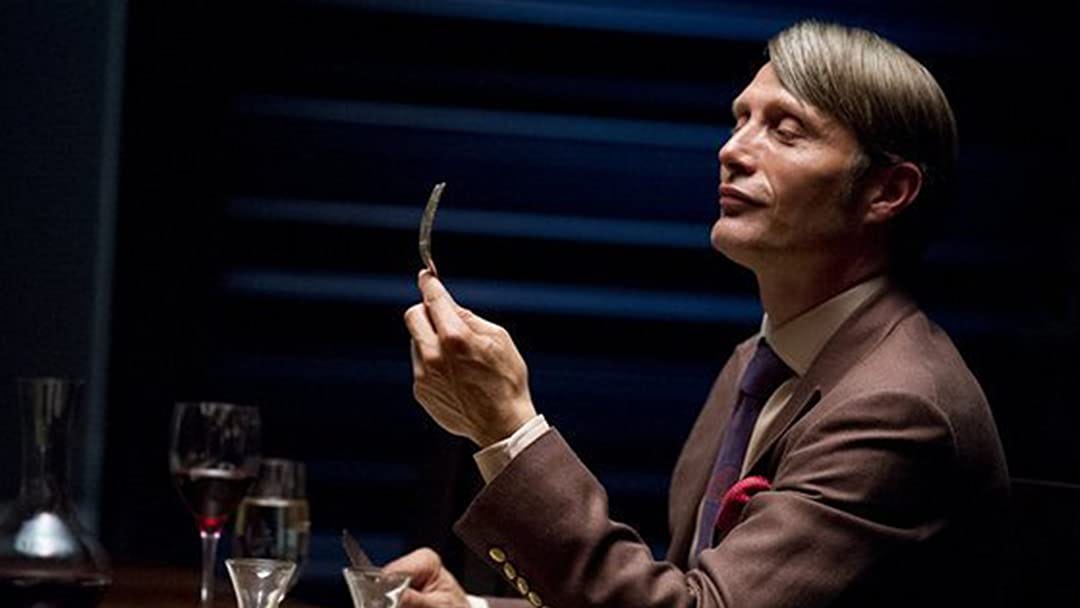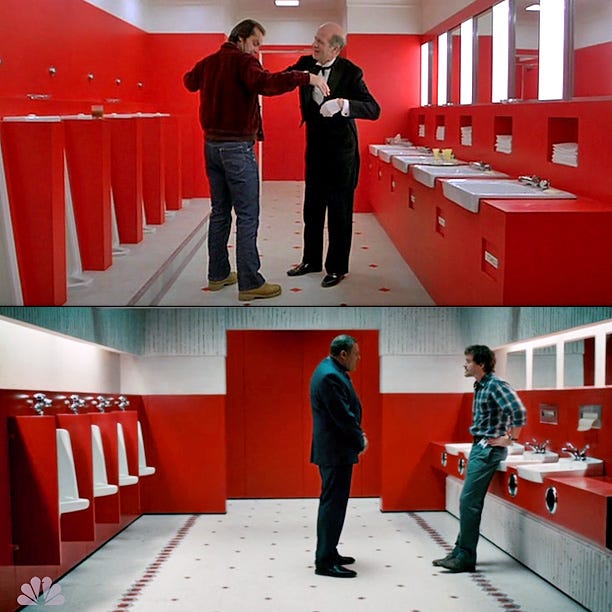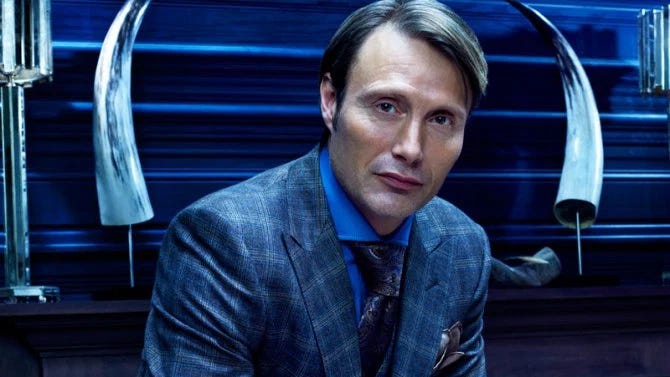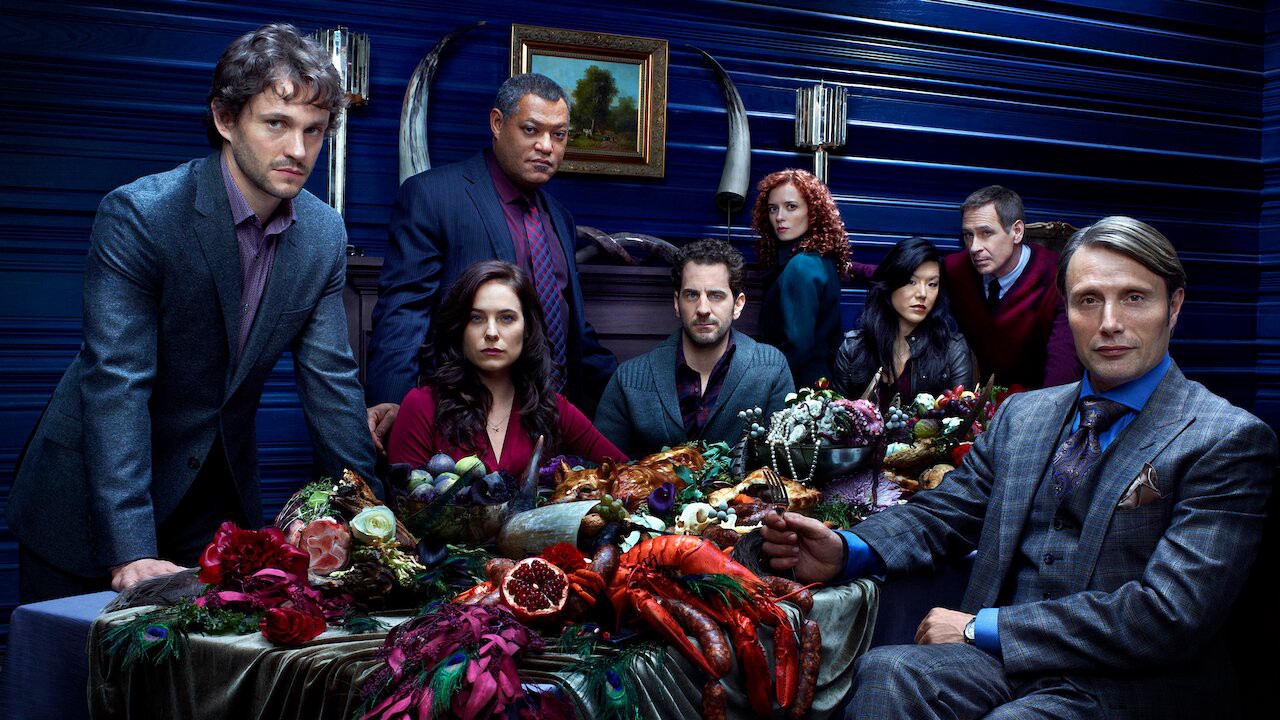From Urban Dictionary: Based on the central character in the Eminem song of the same name, a “stan” is an overzealous maniacal fan for any celebrity or athlete.
Look, I think we can all agree Silence of the Lambs is, for all intents and purposes, a perfect movie. The film is one of (so far) only three in history to win the “Big Five” Oscars: Best Picture, Best Director, Best Actress, Best Actor, and Best Adapted Screenplay. Dr. Hannibal Lecter became a mainstay part of pop culture history, and the film is regarded as a classic. Needless to say, attempting to one up such a massive hit (and one of my own favorite films) was a lot to ask of Bryan Fuller’s Hannibal. And yet, through three intricately crafted seasons of television, Hannibal has managed to make itself into the best incarnation of a property based off of Thomas Harris’ Hannibal books.
Hannibal focuses on the titular Dr. Hannibal Lecter, the high class forensic psychiatrist with a taste for human flesh, which would earn him the nickname “Hannibal the Cannibal.” Juxtaposed to Lecter’s story is that of Will Graham, an FBI case profiler who suffers from encephalitis and a very exaggerated ability to empathize with serial killers and follow their footsteps a little too well. He’s a man who dances on the line between good and bad, and just barely holds onto the good side. Graham is the obvious weirdo, who struggles in social interactions, and thus, most people assume he has Asperger’s syndrome, whereas he is actually struggling to contain a need to fully act on those psychopathic impulses he harbors inside from years of placing himself in murderer’s shoes. And on the other hand, Dr. Lecter exudes class and charisma, casually murdering people he finds rude and eating them (even feeding them to guests at dinner parties), and shows no obvious signs of his sadistic nature. Naturally, their two stories intertwine, and the interactions between them are nothing but fascinating. A friendship turns to a game of cat and mouse, and from there it actually evolves into a mutual respect, and from there, blossoms into a romance, over the course of the series. It was the only natural path that the show could take. And the twisted relationship is the highlight, though it is not the only great element. Let me run down what makes it so special:

Style
Hannibal is among the most beautiful shows I’ve ever seen. Every single shot serves a purpose and is designed to be as visually enticing as possible, even when showcasing gruesome murders. It’s shot in such dark lighting, but the detailing of the world isn’t lost in that darkness. Instead, it thrives inside that darkness. The show uses a variety of bizarre and wondrous techniques, from the color choices, the carefully crafted set pieces, the zooms, the slow motion, and boy, those sex scenes which are reminiscent of looking through kaleidoscopes. It is, to say in short, mesmerizing. The commitment to visual storytelling being as critical as verbal storytelling is akin to the work of Stanley Kubrick, and there’s even a very obvious visual Shiningreference at one point.

Style and generally speaking, cinematography, are taken for granted by general audiences (and apparently, The Oscars) so frequently, but Hannibal is so critically connected to its visual storytelling that it’s impossible to ignore. For such an ugly subject matter, it sure looks pretty. “Pretty” is an understatement. It looks stunning.
Substance
What is art if it looks good with a vapid message? It’s probably still art, but it’s not quite as enticing or good, per say. I don’t know about you, but I like something to chew on, something to think about or discuss. And Hannibal serves up plenty of that. There’s a lot to be said about the show’s stances on morality and the world, but Hannibal Lecter himself is the best representation of that. Dr. Lecter doesn’t have a tragic backstory; in fact, his backstory is somewhat shrouded in smoke, with few details emerging from his past. Hannibal is the Devil to Will Graham, and Will seems to be pretty into it, despite what that means for his own soul. Dr. Lecter is intoxicating and fascinating, and frankly, the audience is never given a justification for why the man is so evil. There’s no sad backstory of an abusive parent, no tragic lover lost, nothing much beyond a deceased sister (whom he ate). Dr. Lecter himself knows this, and takes pride in it, seeing himself as above humanity, even declaring that nothing happened, just that “I happened.” His ego is so massive, and yet, it almost feels as if he’s earned that statement. And brilliantly, we empathize with the great empath, Will Graham, and understand why he is allured to Dr. Lecter, just as we are.

Dr. Lecter treats Will like a fellow companion, an (almost) equal, the highest compliment Dr. Lecter is capable of. He treats him like a fellow killer. Frankly, Will brings out the best in Hannibal (like all the best relationships). And it’s a fascinating contrast to how Jack Crawford (Will’s boss at the FBI) treats Will. He also admires Will and sees great potential in him, but rather, it’s the potential to do good. However, Crawford pushes Will too far very frequently in the early seasons of the show, pushing him to the point of having a mental breakdown. He’s too intense and forceful, and unlike Hannibal, cannot understand how Will’s mind works whatsoever. And yet, Crawford is on the side of the law, but more importantly, on the side of, you know, not murdering people. Watching these three characters interact, and see Crawford and Hannibal play tug of war for Will’s soul is brutal, but thrilling. Crawford is playing Will’s good natured and humanitarian heart, and Hannibal is playing Will’s lusty and romantic heart. And those are just three of the characters on the show.
Cast and Characters
As you can tell, each character in this show is given a lot of depth and purpose in any scene they appear in. I’ll quickly go over the cast (which is decently peppered with diverse choices) and characters and give quick takes. It’s a shame the show was cancelled before Silence of the Lambs would have been adapted. I would have loved to see Bryan Fuller’s take on Clarice Starling and Buffalo Bill.
Hannibal Lecter (Mads Mikkelsen)-I am confident in saying that Mikkelsen has become my favorite iteration of Dr. Lecter, surpassing even Anthony Hopkins, who played the character in three films. Mikkelsen doubles down on the ego and animal-like curiosity that Hopkins delievered, but brings his own elegance and pensiveness to it, being less obviously creepy and instead truly being more charismatic and alluring. That being said, when he doesn’t need to hide in his “person suit,” he’s fully capable of being terrifying. His tall body, slim figure, and lurking posture truly make him look like an alpha predator. There’s more subtlety in the performance than Hopkins, but there’s just as much to observe nonetheless, and Mikkelsen constantly demands attention. Disregarding the advantage of having more screentime than any iteration of the character, Mikkelsen has now become the definitive version for myself (and many others), and you need to recall that Silence of the Lambs is one of my all-time favorite films. I don’t say this lightly.
Will Graham (Hugh Dancy)-Dancy’s portayal of Will Graham is by far the best version. There’s no question. His take is a man on the edge, someone who dances the line between “good” and “bad,” someone who is pretty unpredictable, unlike the “always plotting” Dr. Lecter. If Dr. Lecter is a psychopath (more or less), Will is a sociopath-impulsive, emotional, intense, and improvising. And yet, he always tries to fight his darker nature and do the right thing; but at times, that might be whatever he is told is the right thing. Dancy’s portayal is such a huge factor in the success of this character. You go from feeling sorry for him to fearing him, but you don’t ever really stop rooting for him.
Jack Crawford (Laurence Fishburne)-Once again, this is by far the best version of the character, who really isn’t a major character in most other iterations. Fishburne is a screen stealing actor, and likewise, the decision to make Crawford more nuanced and interesting makes the standard “boss cop” role so much more. He doesn’t just sit around in an office and chuck around theories and bark orders at subordinates, he’s shown as fully human and very much flawed.
Bedelia Du Maurier (Gillian Anderson)-Dr. Du Maurier is an original character made for the show, and when I first saw her, I was instantly hooked. What a concept: A psychiatrist for Dr. Lecter, himself a psychiatrist. Their twisted interactions with each other, philosophizing on Dr. Lecter’s inner machinations are a prime example of original material that Hannibal creates so effectively to faithfully adapt the spirit of the original novels, while still being capable of being its own media.
Alana Bloom (Caroline Dhavernas)-A fellow FBI consultant, like Graham, and a psychologist, similar to Hannibal, Dr. Bloom starts off as a pretty neutral character, but Hannibal’s influence turns her down a pretty dark path over the course of the series, as she grows tired of being manipulated. The character “Alan Bloom” was a minor one in the Red Dragon book, but was expanded and gender swapped for Hannibal, and yes, Dr. Boom is actually interesting now.
Freddie Lounds (Lara Jean Chorostecki)-Just like Dr. Bloom, Freddie Lounds was cast as female for the show, despite being male in the books. Here, Freddie also has an expanded role, constantly rubbing everyone the wrong way as a pushy and sleazy journalist, pushing on paparazzi territory. In fact, Freddie’s role is actually integral in Hannibal’s run, again highlighting how each character serves a purpose. The role of Freddie was played by none other than freakin’ Phillip Seymour Hoffman in the Red Dragon film adaptation, but Lara Jean Chorostecki managed to make the role her own.
Frederick Chilton (Raúl Esparza)-The insufferable and egotistical Dr. Chilton is the punching bag of Hannibal. No one likes him, no one respects him, and something awful happens to him in each season. Raúl Esparza really likes to ham up the role and the character is so much better for it, as he constantly thinks he’s the manipulative mastermind of events, when he’s really just someone else’s pawn. And best of all, he never learns his lesson. And yet, you can’t help but feel bad for him, despite his total lack of charisma. Maybe his snark and sassy one-liners are what stop him from being a completely unlikable person.
Mason Verger (Michael Pitt/Joe Anderson)-As one of the big baddies of the show, Mason Verger is taken from the Hannibal book, and was previously played by Gary Oldman in the movie of the same name. And I must say, both actors for Verger are fantastic. The character is a horrible person, a sex offender and sadist who doesn’t really hide anything. He’s a monster in plain sight, and his comeuppance is utterly satisfying, but it also makes him so much more dangerous than he already was. He’s clever, he’s rich, and he’s determined, making for a good villain for a series that features a monster like Hannibal Lecter.
Francis Dolarhyde (Richard Armitage)-As the main antagonist of the Red Dragon novel, Dolarhyde, AKA, “The Tooth Fairy,” is a serial killer who serves as a fascinating parallel to Dr. Lecter. And yes, he was previously played by Ralph Fiennes (one of my favorite actors) but I was surprised at how animalistic and intense Armitage was in the role.. Unlike Dr. Lecter, Dolarhyde actually tries to stop his dark side and is not in control of his evil and murderous actions. He has sympathetic traits, he has a tragic backstory, he has a heart. But he just can’t help himself, he is clearly mentally ill and totally unstable. If anything, he is a parallel to Will Graham, but by the time Dolarhyde is introduced, Will is already walking a very dangerous line between villain and hero, so the approach to how to take down Dolarhyde (legally, or via murder) is the intriguing aspect of Dolarhyde’s story, which has already been adapted to screen with both Red Dragon (2002) and with Manhunter (1986).
Wrapping Thoughts

I think Hannibal might be the best thriller put to the small screen, and certainly the best iteration of a franchise that has been adapted several times by now. The original material keeps book reads on their toes, and the retreaded terrain isn’t tiresome, but rather, intriguing and freshly done versions of already great stories. The show is smart, structured, and yeah, sexy, and it’s a shame it was cancelled after 3 glorious seasons.
I think there’s a good chance for a revival, though. Think about all the recent comebacks that have occurred for television media. Fuller House, Roseanne’s two comebacks, Young Justice, the final season of Samurai Jack, a Twin Peaks return, Community, Arrested Development, Whose Line Is It Anyway?, and newly announced comebacks for The Proud Family, Beavis and Butt-head and The Boondocks. Those are just a few of the projects that are living a second life. I guess nostalgia can have its benefits.
We’re living in an age of revival, and with something as critically acclaimed as Hannibal (which I noticed was trending well on Netflix upon its debut there), they have a great shot at returning to keep telling their tale. How do you ensure it returns?
Watch it!


Comments